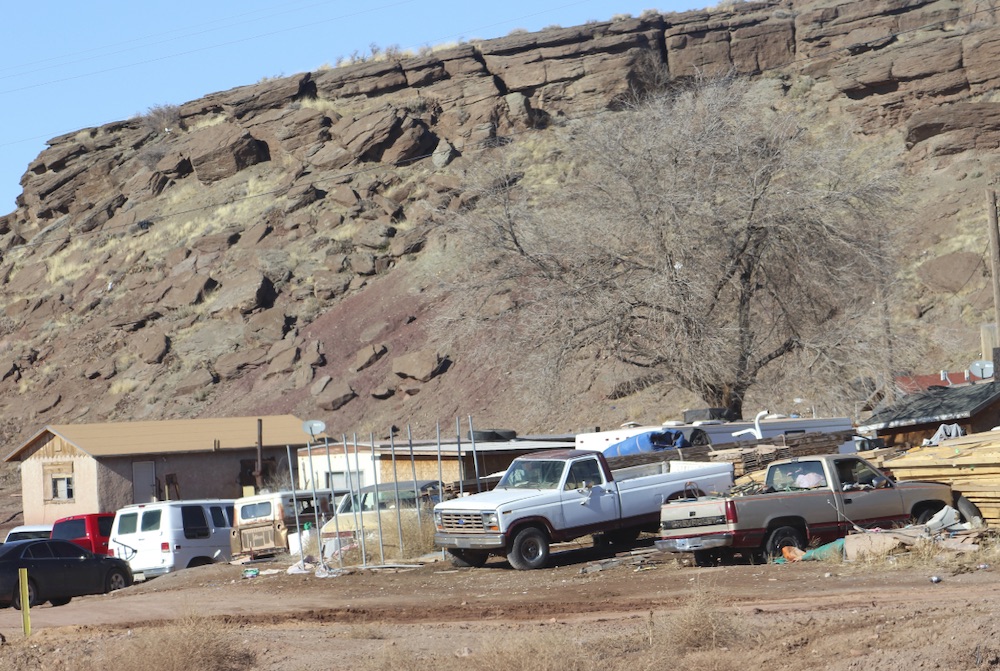
- Details
- By Native News Online Staff
Legislation sponsor Speaker Crystalyne Curley said that passing this historic legislation has been a top priority for the 25th Navajo Nation Council since taking office in January 2023. Speaker Curley thanked her colleagues, attorneys, and many advocates who assisted in negotiating the settlement.
“This is a great day for the Navajo people! This settlement prioritizes the need to provide essential water infrastructure to Navajo families and communities and provides the Nation an opportunity for growth and economic prosperity. It provides a pathway home for tribal members who have moved off the Nation to find career and financial stability,” Speaker Curley said.
Speaker Curley noted that the settlement will have a profound impact on Navajo investments in essential infrastructure projects, such as roads, housing, education, and healthcare. Through the settlement, the Navajo Nation affirms and quantifies its enforceable rights to water in Arizona and to secure funding to build much needed water delivery infrastructure on the Navajo Nation.
The 17 participants to the settlement include the United States (U.S.), the State of Arizona, and the Hopi and San Juan Southern Paiute Tribes. The settlement calls for the Navajo Nation to receive a substantial amount of the Colorado River Upper Basin water, some Lower Basin water, all groundwater underlying the Navajo Nation, all surface water that reaches the Navajo Nation from the Little Colorado River, and all wash water that reaches the Nation south of the Hopi Reservation.
The finalization of the settlement signifies an incredible moment in Navajo history.
The settlement provides the Nation the flexibility to move Arizona water from the upper basin to lower basin Navajo communities, and to divert Arizona water in New Mexico and Utah, which in some cases is closer to our Arizona communities. This settlement also secures billions of dollars’ worth of funding to build critical water delivery infrastructure for the Nation that wouldn’t be possible through litigation.
Once the proposed settlement is authorized and executed by the Navajo Nation and the U.S., funding will, in the near-term, provide needed water infrastructure to bring water to hundreds of Navajo families in Arizona who do not currently have access to piped water.
Projects in the settlement include the iiná bá–paa tuwaq’atsi Pipeline (formerly known as the Western Navajo Pipeline), the Four Corners Project, the Southwest Regional Groundwater Project, the Ganado Regional Groundwater Project, the Black Mesa Regional Groundwater Project, the Lupton Area Project, the Kayenta Aquifer Storage and Recovery Project and the Code Talker Lateral Extension.
Once Navajo Nation President Buu Nygren signs it, federal legislation is expected to be introduced in Congress.
“We have to stand by and support this settlement that will provide a path forward to prosperity for our people.I thank my colleagues of the 25th Navajo Nation Council for all of their hard work in negotiating this settlement and for their unanimous support,” Speaker Curley said.
The 25th Navajo Nation Council unanimously supported Legislation No. 0109-24 with a vote of 22 in favor and none opposed. Once the resolution is certified and delivered to the Office of the President and Vice President, the Navajo Nation President will have ten calendar days to consider the funding request.
More Stories Like This
Gwich'in Tribal Governments Submit Comments Challenging Fish and Wildlife Service's Inadequate Environmental Review of Arctic Refuge Snow RoadRappahannock Tribe Challenges 9M-Gallon Water Plan
Feds release draft long-term plans for Colorado River management
Apache Leader Walks 60 Miles to Court Hearing That Will Decide Fate of Sacred Oak Flat
Rappahannock Tribe Raises Sovereignty and Environmental Concerns Over Caroline County Water Permit
Help us defend tribal sovereignty.
At Native News Online, our mission is rooted in telling the stories that strengthen sovereignty and uplift Indigenous voices — not just at year’s end, but every single day.
Because of your generosity last year, we were able to keep our reporters on the ground in tribal communities, at national gatherings and in the halls of Congress — covering the issues that matter most to Indian Country: sovereignty, culture, education, health and economic opportunity.
That support sustained us through a tough year in 2025. Now, as we look to the year ahead, we need your help right now to ensure warrior journalism remains strong — reporting that defends tribal sovereignty, amplifies Native truth, and holds power accountable.
 The stakes couldn't be higher. Your support keeps Native voices heard, Native stories told and Native sovereignty defended.
The stakes couldn't be higher. Your support keeps Native voices heard, Native stories told and Native sovereignty defended.
Stand with Warrior Journalism today.
Levi Rickert (Potawatomi), Editor & Publisher


